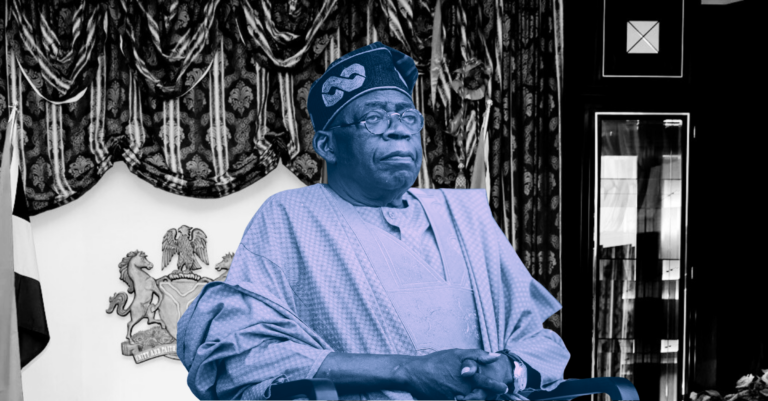Nigerians are grappling with what many describe as the country’s harshest economic upheaval in recent memory, triggered by a wave of radical reforms under President Bola Ahmed Tinubu. While aimed at long-term fiscal stability, these changes have unleashed immediate economic pain, forcing millions to adapt to a new—and tougher—reality.
The reforms, including the removal of fuel subsidies and exchange rate unification, were designed to correct deep-rooted inefficiencies. But instead, they’ve spurred record inflation, a cost-of-living crisis, and a general decline in household purchasing power.
Prices of basic goods and services have soared. Transport now consumes a major share of workers’ salaries, and electricity tariffs have tripled for Band A users. Fuel prices skyrocketed from ₦190 per litre in May 2023 to ₦950 by April 2025, while a 50kg bag of rice shot up from ₦30,000 to ₦90,000 within the same period.
Inflation, which peaked at 33.2% in December 2024, temporarily dipped to 23.18% in February 2025 after a revision in methodology, but crept back up to 24.23% in March. The IMF projects an average inflation rate of 26.5% for 2025, with a potential rise to 37% by 2026, casting doubt on the sustainability of current policies.
Yet, amid the chaos, Nigerians are adjusting—not out of comfort, but out of necessity.
“Nigerians are incredibly resilient,” said Simon Samson, an Economics lecturer at Baze University, Abuja. “They’ve been humbled by the economic hardship and have chosen adaptation over confrontation.”
While public anger briefly boiled over in the #EndBadGovernance protests in parts of northern Nigeria in August 2024, the widespread outrage has since quieted. Experts say this silence reflects not acceptance, but a deep, survivalist shift in behavior.
Adapting Through Informality
According to Abdulfatai Adedeji of the Centre for the Study of Economies of Africa (CSEA), this resilience is embedded in Nigeria’s economic structure—marked by high informality and self-employment. From agriculture to petty trade, millions juggle multiple low-income ventures to make ends meet.
“People are cutting back on non-essentials, selling food stock, taking on side hustles, or leaning on their social networks,” Adedeji explained, citing the 2023/24 General Household Survey, which revealed:
14% reduced food intake
10.6% sold food stock
9.1% picked up extra work
13.7% received informal support
Despite the hardship, some reforms are yielding early macroeconomic gains. Exchange rate unification has narrowed black-market premiums, while the end of fuel subsidies has freed up revenue and encouraged investments in alternatives like Compressed Natural Gas (CNG).
“These are directionally sound policies,” Adedeji noted. “But their success depends on implementation, transparency, and social protection.”
Still, experts warn that the benefits are fragile and unequally distributed. Delays in programs like the student loan scheme highlight Nigeria’s ongoing problem: weak policy execution.
Flickers of Relief
Recent months have shown modest relief in food prices, with foreign rice dropping slightly from over ₦100,000 to ₦90,000 per 50kg, thanks to improved harvests and duty-free food imports. But analysts caution that the trend isn’t sustainable without year-round farming and greater investment in agriculture.
“We’re still facing massive challenges—climate shocks, insecurity, poor logistics,” Samson said. “These drive food inflation, which stood at 21.79% in March 2025.”
A New Normal
Could prices ever return to pre-2023 levels? Experts are unanimous: unlikely.
“That ship has long sailed,” Samson said. “Even if inflation slows, we’re in a new price era.”
Adedeji agrees. “Returning to old prices would require rapid resolution of deep-rooted inflation drivers—something we’re not seeing yet.”
To survive this “new normal,” Nigerians must continue to:
-
Prioritise essentials
-
Diversify income sources
-
Rely on community support
At the same time, the government must step up:
-
Coordinate fiscal and monetary policies
-
Invest in infrastructure and agriculture
-
Strengthen reform implementation with a human-centered approach
“Nigerians are not thriving—they are enduring,” said Adedeji. “But with consistent policies and credible leadership, this pain may eventually yield a more resilient, prosperous economy.”
Until then, the struggle continues—not out of choice, but out of necessity, fueled by the hope that today’s sacrifices will build a better tomorrow.

